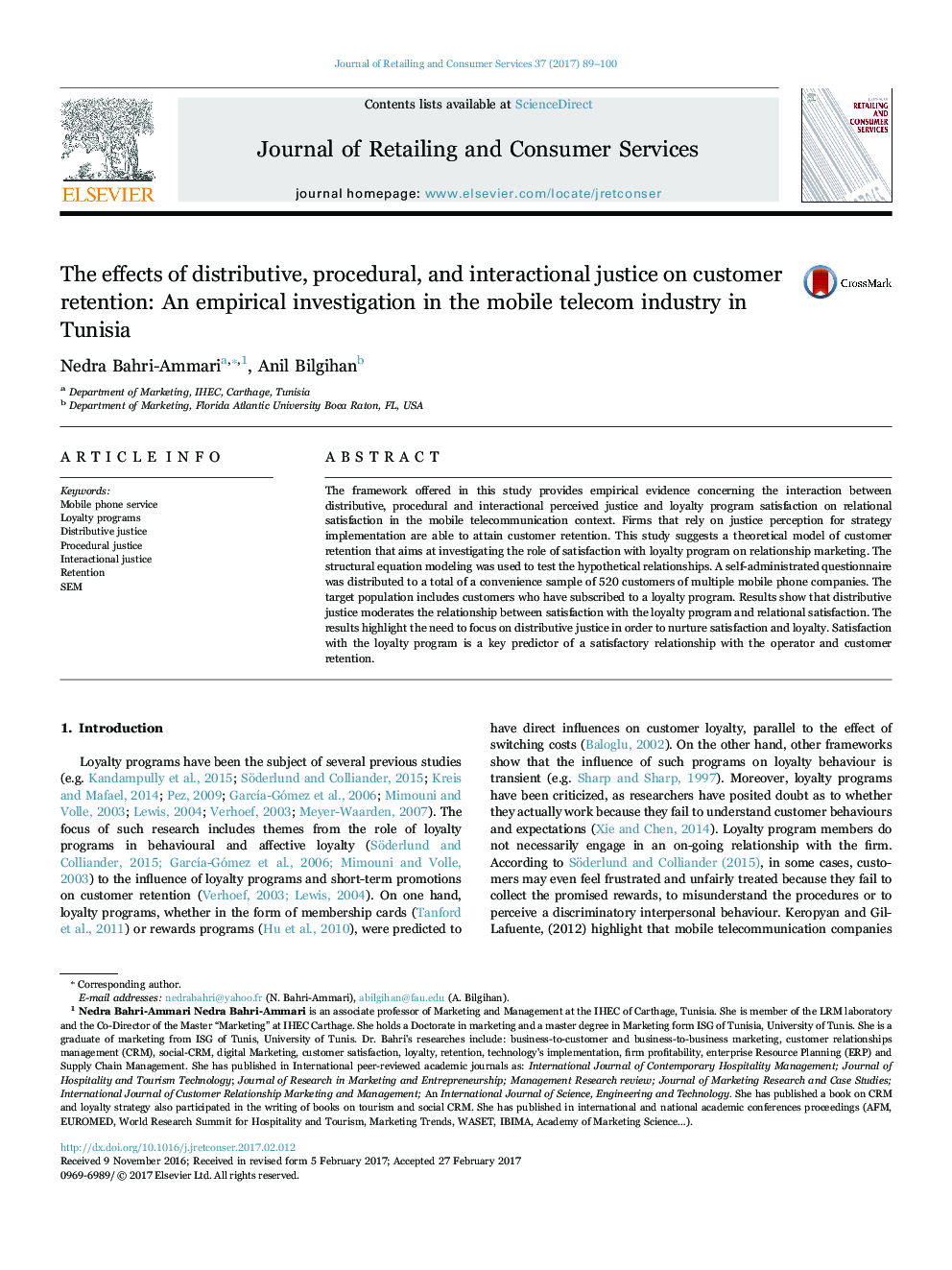| Article ID | Journal | Published Year | Pages | File Type |
|---|---|---|---|---|
| 5111274 | Journal of Retailing and Consumer Services | 2017 | 12 Pages |
Abstract
The framework offered in this study provides empirical evidence concerning the interaction between distributive, procedural and interactional perceived justice and loyalty program satisfaction on relational satisfaction in the mobile telecommunication context. Firms that rely on justice perception for strategy implementation are able to attain customer retention. This study suggests a theoretical model of customer retention that aims at investigating the role of satisfaction with loyalty program on relationship marketing. The structural equation modeling was used to test the hypothetical relationships. A self-administrated questionnaire was distributed to a total of a convenience sample of 520 customers of multiple mobile phone companies. The target population includes customers who have subscribed to a loyalty program. Results show that distributive justice moderates the relationship between satisfaction with the loyalty program and relational satisfaction. The results highlight the need to focus on distributive justice in order to nurture satisfaction and loyalty. Satisfaction with the loyalty program is a key predictor of a satisfactory relationship with the operator and customer retention.
Related Topics
Social Sciences and Humanities
Business, Management and Accounting
Marketing
Authors
Nedra Bahri-Ammari, Anil Bilgihan,
